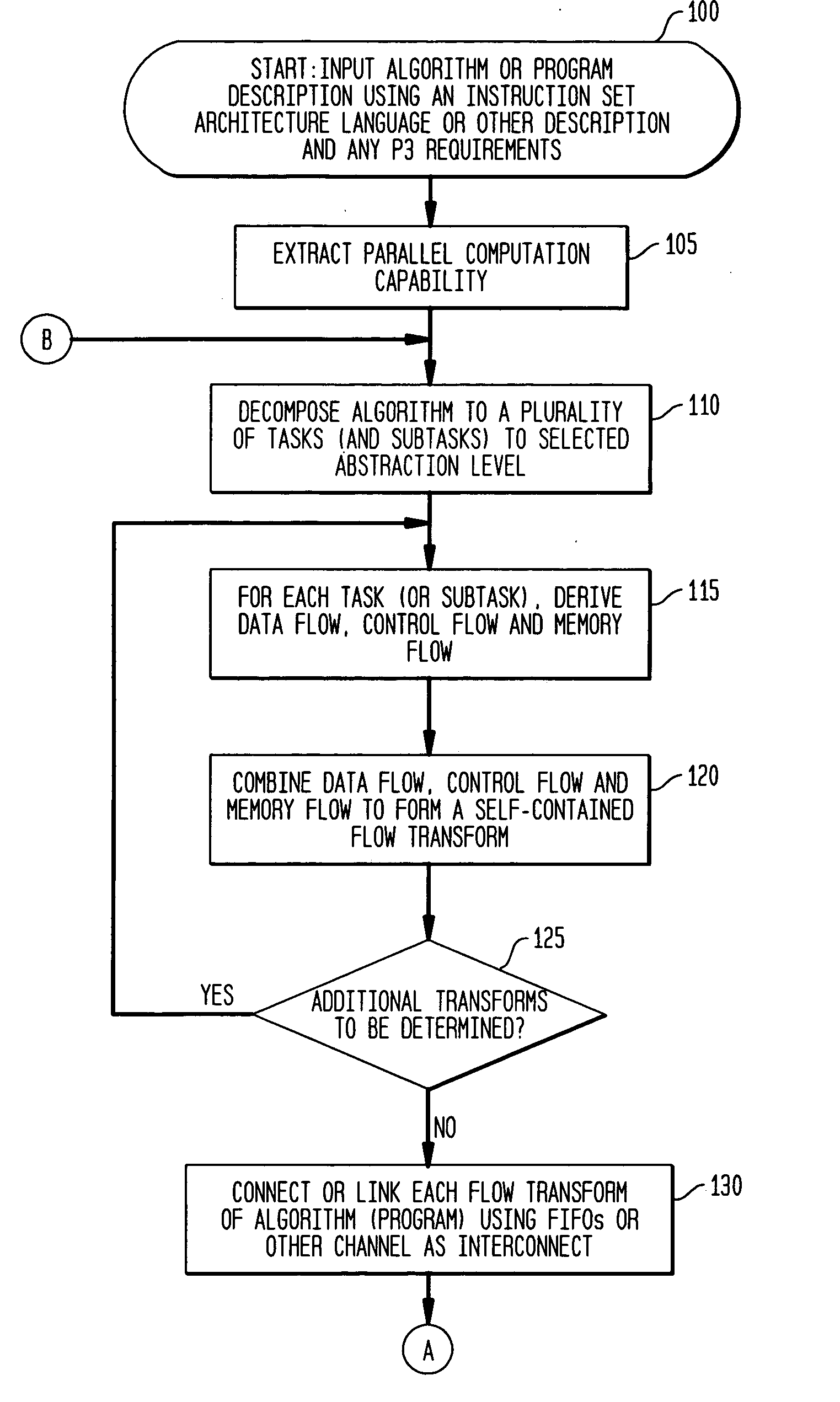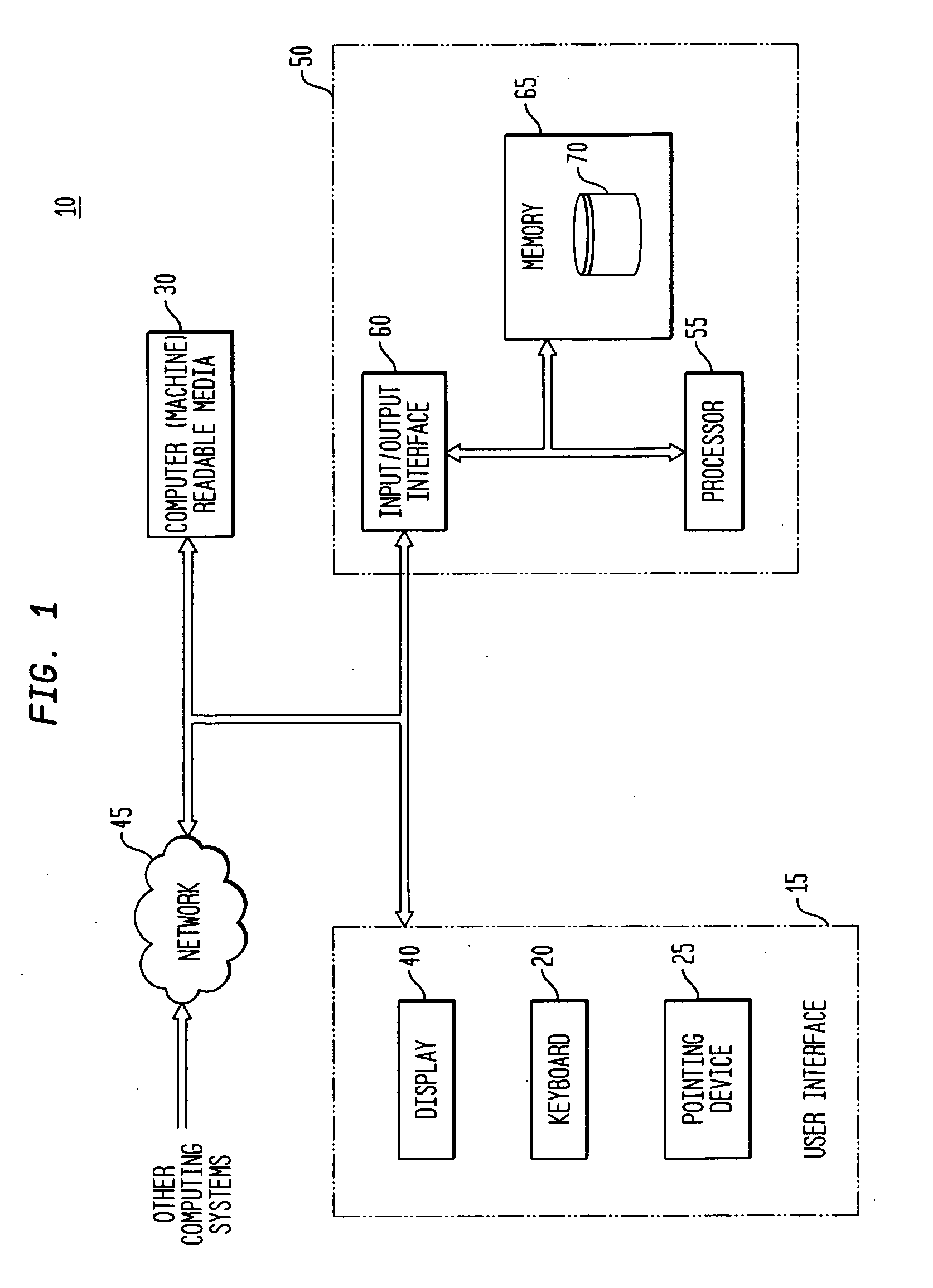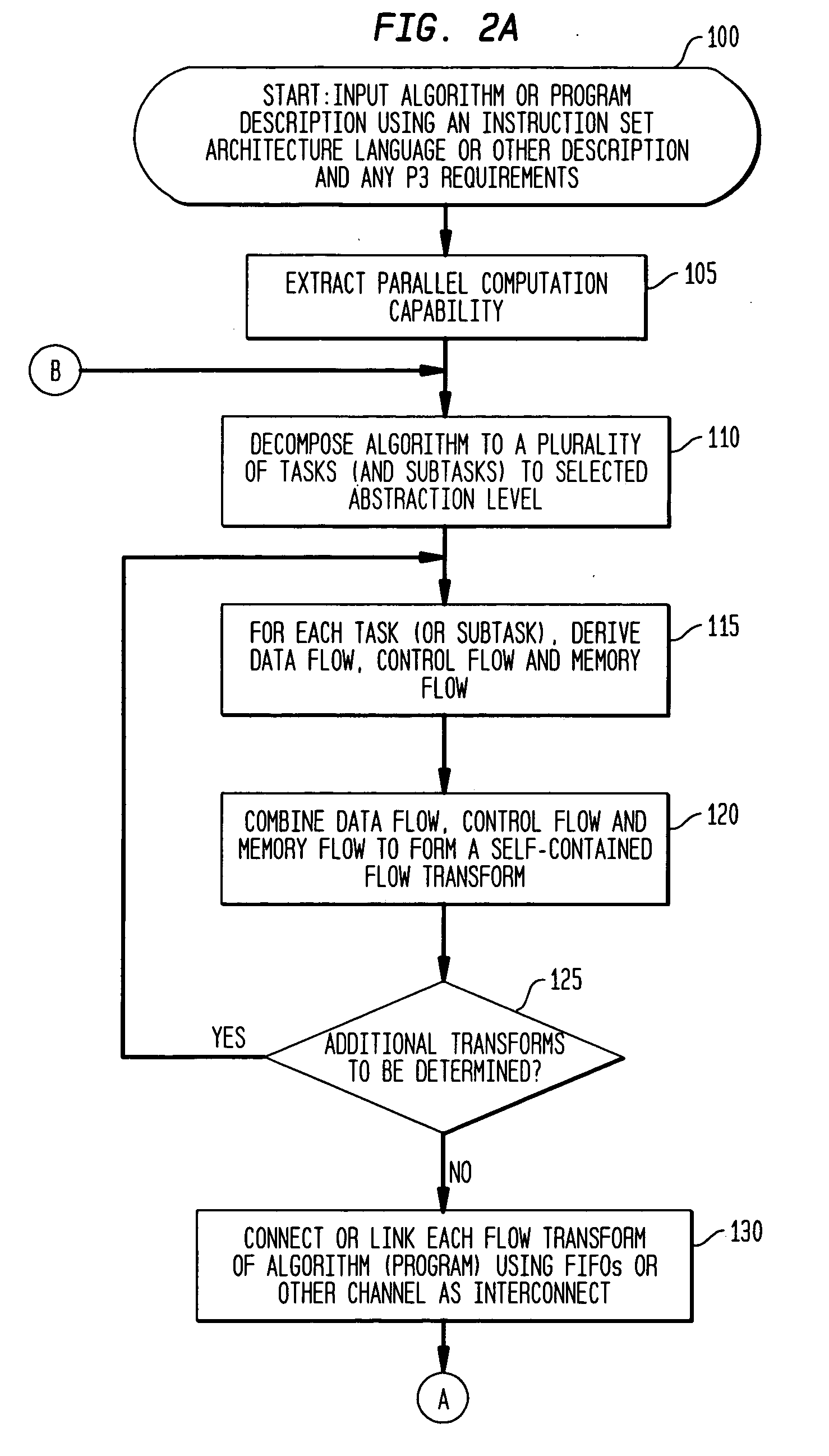Flow transform for integrated circuit design and simulation having combined data flow, control flow, and memory flow views
- Summary
- Abstract
- Description
- Claims
- Application Information
AI Technical Summary
Benefits of technology
Problems solved by technology
Method used
Image
Examples
embodiment 500
[0074]FIG. 6 is a block and flow diagram illustrating an exemplary Algorithmic ESL design, simulation and modeling automation platform system embodiment 500, referred to herein as an “Algorithmic ESL system”500, in accordance with the teachings of the present invention. The Algorithmic ESL system 500 illustrated in FIG. 6 provides an infrastructure to (1) architect an IC, such as an adaptive computing IC or “system-on-a-chip” (“SoC”); (2) generate applications to run on the architecture; (3) functionally simulate algorithms and applications; (4) simulate and model the architecture with given applications; (5) simulate and model the applications as operating on the target architecture; and (6) compile the application to the target architecture (illustrated in FIG. 7). The Algorithmic ESL system 500 (and 600, below) is embodied as one or more systems 10 and / or apparatuses 50 illustrated and discussed with reference to FIG. 1.
[0075] The Algorithmic ESL system 500 may generally be divid...
embodiment 600
[0093]FIG. 7 is a block and flow diagram providing another, more high-level illustration of an exemplary Algorithmic ESL design, simulation and modeling automation platform system embodiment 600 in accordance with the teachings of the present invention, and further illustrates the integration of the AESL platform with other significant components, such as compiler 650. In FIG. 7, the various outputs from the various platforms are illustrated as databases, namely, a functional models database 605 (provided by the application and system design platform 520 for use in interactive and iterative functional simulation and modeling), a computational element (or other device) models database 615 (provided by the instruction (or control) and memory-based modeling platform 510, in conjunction with the system modeling and simulation platform 540), and a cycle-accurate models database 610 (provided by the application and system design platform 520 in conjunction with the information from the co...
PUM
 Login to View More
Login to View More Abstract
Description
Claims
Application Information
 Login to View More
Login to View More - R&D
- Intellectual Property
- Life Sciences
- Materials
- Tech Scout
- Unparalleled Data Quality
- Higher Quality Content
- 60% Fewer Hallucinations
Browse by: Latest US Patents, China's latest patents, Technical Efficacy Thesaurus, Application Domain, Technology Topic, Popular Technical Reports.
© 2025 PatSnap. All rights reserved.Legal|Privacy policy|Modern Slavery Act Transparency Statement|Sitemap|About US| Contact US: help@patsnap.com



